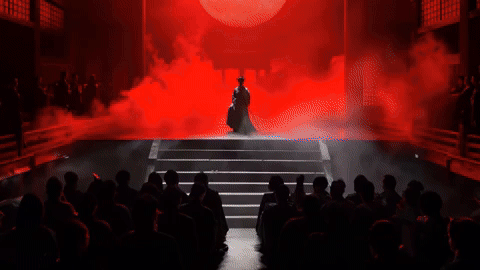An image of a topless woman on a crowded subway carriage in the South China city of Guangzhou recently began circulating online, shocking netizens and triggering a debate about the lady’s fate in a country where nudity is no joke.
And while some may have liked to imagine that the woman was simply a fearless exhibitionist, it has since come to light that the image was altered by artificial intelligence.
The original photo was posted by a blogger on the Chinese social media platform Xiaohongshu last July, showcasing her outfit of the day (OOTD). The content creator’s clothes were later ‘taken off’ by A.I. software.
Xinmin Evening News, a state-owned newspaper based in Shanghai, reported that the blogger is now collecting evidence and promises to take legal action.
Netizens responded to the news with supportive comments, and some even shared similar stories.

The situation understandably sparked outrage online. Some voiced concerns over the dangers of A.I., worrying that it could create chaos and disrupt social order.
However, more pointed out that it’s not A.I. itself that’s the problem but the people who were misusing it. Female netizens were especially triggered by the news, claiming that it’s perverted men that scare them, not the technology.
“We must make laws that regulate and enforce harsh punishment on this kind of crime, which could ruin a girl’s reputation,” one commented on Weibo, China’s top microblogging platform.
China has passed laws regarding A.I. works. Starting in January this year, the country banned any A.I.-generated artwork without a clear label or watermark. Any platform providing such services will need to be registered with government agencies, and users need to verify their national I.D. number to use these sites.
China has long utilized its arsenal of censorship tools to block pornographic material online. However, a simple search on Baidu, China’s top search engine, reveals many websites that claim to be able to “take people’s clothes off with just one click.”
The Beijing News, a state-owned newspaper, reported that these websites are primarily aimed at undressing female victims. Even if you upload a man’s photo to be undressed, the algorithm will generate a photo of the man’s face with a nude female body.
This recent episode involving the topless blogger on the Guangzhou metro is many people’s worst nightmare come true: Since deepfakes first appeared in 2017, some folks have been warning that the technology could be used for making fake porn videos with the faces of female celebrities.
And with the lightning-fast development of A.I., it’s getting easier and more accessible for people to create deepfake photos, so expect more similar incidents in the future.
Cover image via Depositphotos


















